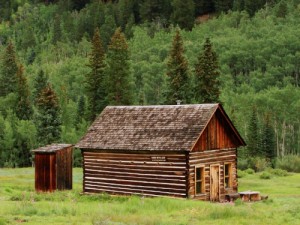Off the Virtual Grid?
Earlier this week I had an interesting question from a group of executives in central Pennsylvania. We were discussing the implications what I call “the virtualization of America” and how much of our lives and work will take place in cyberspace by the end of the decade.
During the conversation one of the executives, in her mid-thirties, said that for a variety of reasons—privacy, human contact, security—she really wasn’t that comfortable with social networks and email and all of the other digital accoutrements steadily consuming our lives. She acknowledged that she was in the minority, but suggested that there will always be people who simply don’t want to engage with the virtual world. What, she wanted to know, are those people going to do? In the future, will you be able to have a life without the Internet?
Coincidentally, there’s also been quite a bit of chatter lately among the digerati on a similar theme. Dave Roberts, a popular blogger at the environmental site Grist, had announced that he was leaving the cybersphere, cold turkey, for a year—no blogging, no email, no tweets. He was burned out on virtuality.
At the same time the author of the influential legal blog Groklaw announced that she was shutting down her blog since, given recent revelations about US government surveillance, she could no longer offer her email correspondents and sources any hope of anonymity.
The desire to get “off the grid” is of course not new. In decades past, that meant detaching from civilization—generate your own power, grow your own food, dig wells, join the barter economy, etc. Just about every generation has a group that decides civilization is soon to end for one reason or another—Peak Oil, social collapse, the Year 2000—and heads for the hills. Some percentage decide after five or ten years that it’s hard work out in the wilderness, the apocalypse may not be quite so imminent and so they return to the world of pavement and petroleum.
Getting off the “virtual grid”, however, may be much more demanding. By the end of the decade, while it will still be possible to eschew all forms of electronic communication, it’s going to harder and harder to move through society without involving some chips and data. Everything from car and parking places to your electric meter and dishwasher will be connected to the Internet. Web-connected video cameras, perhaps running facial recognition software, will be everywhere. Already, even small businesses can hook up their existing video security systems to a cloud-based system that automatically reports customer demographics and movements. All I could tell the young manager in my meeting was that getting off the virtual grid will probably require even effort than in the past. Head for the hills or the desert, give up on the money economy, become entirely self-sufficient in food and energy, detach entirely from news of the outside world…
And then make sure that your new high-tech solar panels aren’t actually Web-enabled.

